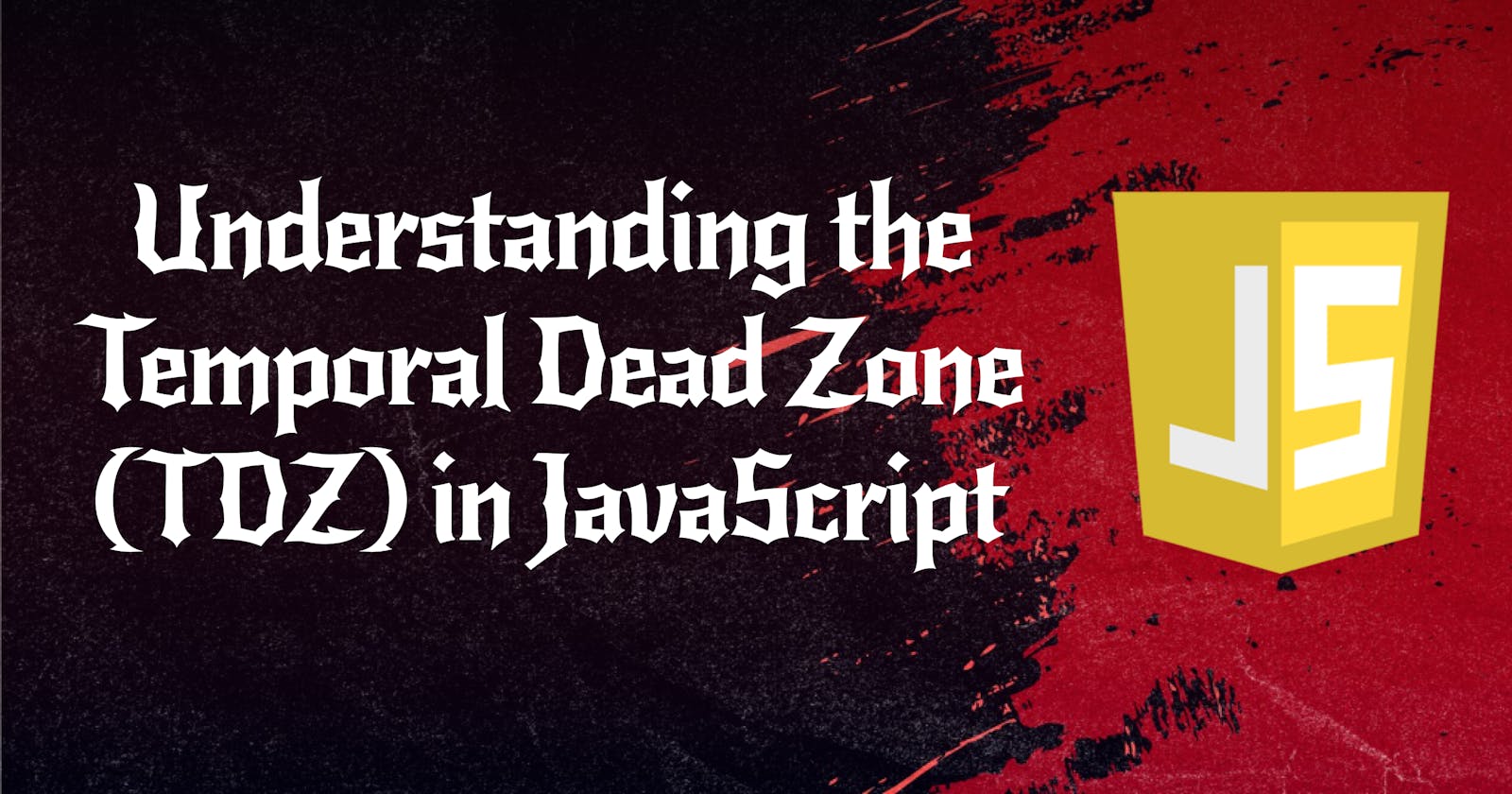Understanding the Temporal Dead Zone (TDZ) in JavaScript: What it is and How to Avoid Errors
A look at the concept of the TDZ and its implications for variables declared with 'let' and 'const' in JavaScript.
Table of contents
JavaScript is a powerful and versatile programming language. One of the key features of JavaScript is its ability to handle variables and data structures in a dynamic and flexible way. One common error that can occur in JavaScript is the use of a variable before it has been properly declared, known as a "Temporal Dead Zone" (TDZ).
What is Temporal Dead Zone (TDZ)
In JavaScript, the temporal dead zone (TDZ) refers to the period of time during which a variable declared with the "let" or "const" keyword cannot be accessed or used. The TDZ begins at the point of declaration and ends when the variable is initialized with a value.
When a variable is declared with "var", it is hoisted to the top of the scope and is assigned the value "undefined" by default, so it can be accessed and used before it is initialized. However, variables declared with "let" or "const" is not hoisted and cannot be accessed or used until they are initialized.
for example:
console.log(num); // ReferenceError: num is not defined
let x = 23;
In this code snippet, attempting to access the variable "num" before it is initialized will result in a "ReferenceError: num is not defined" error. This is because the variable "num" is in the TDZ at the point when the "console.log(num)" statement is executed.
This is where the TDZ comes into play. The TDZ is the period of time between the creation of a variable and its initialization, during which the variable is considered to be "dead" and cannot be accessed or used. In other words, the TDZ is the period of time between the point where a variable is declared and the point where it is officially initialized.
The TDZ is a feature of JavaScript that helps to prevent errors and bugs caused by the use of variables before they have been properly declared and initialized. By ensuring that variables are not accessible before they are officially declared and initialized, the TDZ helps to ensure that the code is more robust and reliable.
To avoid errors caused by the TDZ, it is important to ensure that all variables are properly declared and initialized before they are used. This can be done by assigning a value to a variable at the time of declaration, or by using a "var" keyword instead of "let" or "const" for variables that do not need to be block-scoped.
It's important to keep the TDZ in mind when working with variables declared with "let" or "const" to avoid unexpected errors and bugs in your code.
Note:- The TDZ is only applicable to let and const, not var, var variables are hoisted to the top of the function or global scope.
In conclusion, the temporal dead zone is an important concept to understand when working with variables in JavaScript. By recognizing the limitations imposed by the TDZ on variables declared with "let" and "const", developers can write more robust and error-free code. It's important to keep in mind that variables declared with "let" or "const" cannot be accessed or used before they are initialized and also reassigned, and if you do, it will result in a "ReferenceError: variable is not defined" error. By being aware of the TDZ and taking appropriate precautions, developers can avoid these errors and create more stable and reliable applications.
